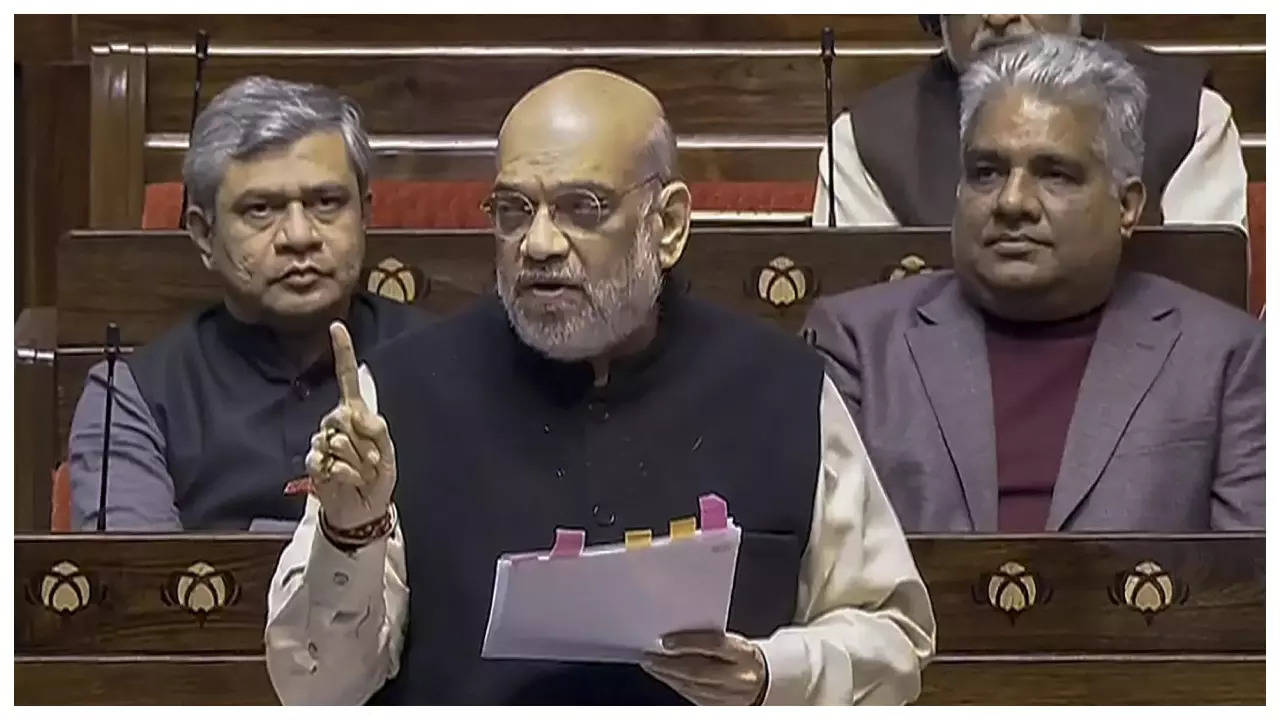Replying to the debate in Rajya Sabha, where the opposition was almost absent due to suspensions, Union home minister Amit Shah said the new laws will be governed by laws made by India, for India, and made in the Indian Parliament.
“The three Bills I have tabled today are not intended at punishing, but giving justice,” said Shah. He also said that the soul of these laws is Indian and for the “first time, our criminal justice system will be governed by laws made by India, for India and made in Indian Parliament.”
“We had been deliberating and discussing on this since August 2019. I feel joyous to be presenting this today. Not just the names of laws have been changed, but major changes have been made in their objectives. Indian Penal Code, Criminal Procedure Code and Evidence Act were formulated to safeguard the British rule,” Shah said in the Rajya Sabha.
He said that after the three new laws are implemented, India’s criminal justice system will take maximum advantage of technology.
“If there will be maximum contribution of technology in any system, it will be in the Indian system…The aim of the three bills is not provide punishment but give justice,” he added.
“Angrejo, Congress ka nahi…” HM Shah rains fire in Lok Sabha over old terrorism laws
The home minister said that in old laws, instead of crimes against women, priority was given to the protection of the Treasury and the British Crown. Shah said the government has removed the section of sedition and replaced sedition with treason.
The recently enacted laws swiftly passed through both the Houses of Parliament with minimal debate. This expedited process occurred after nearly 150 opposition lawmakers were suspended over the past week for protesting security breach in the Parliament.
‘Death penalty for mob lynching under new criminal laws’: HM Amit Shah; Lok Sabha clears 3 new bills
The new provisions in the three laws see severe penalties, including the death penalty for those convicted of mob lynchings and the rape of a minor. Additionally, a 20-year minimum sentence is established for cases of gang rape. To address the backlog in Indian courts, the legislation introduces community service provisions for minor offenses, given the substantial number of pending cases.
The laws also grant increased powers to the police regarding the detention of suspects and broaden terrorism offenses to encompass acts that could pose a threat to India’s sovereignty or ‘economic security.’
Amnesty International expressed concerns, stating that the new criminal justice framework may lead to a ‘targeted crackdown on freedom of expression in the country.’
First time in Indian parliament history, 92 MPs suspended in a single sitting, Opposition terms it ‘murder of democracy’
